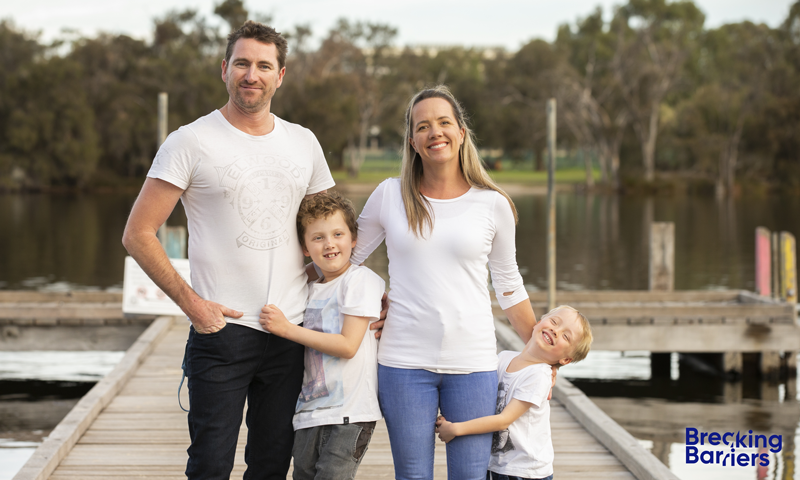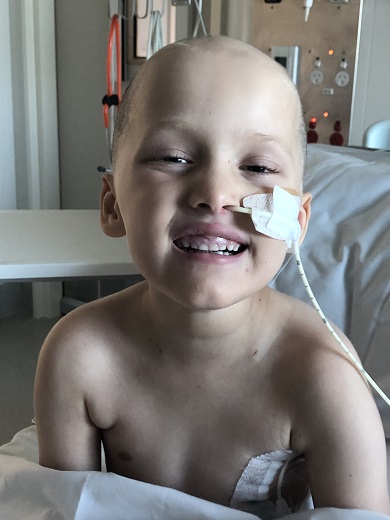Personalised cellular therapy gives Hunter a future
A cutting-edge cellular therapy, made possible by breakthrough research, has given seven-year-old Hunter hope for a brighter future.

Hunter was three years old when he was diagnosed with an aggressive blood cancer, and standard chemotherapy and transplant treatments proved unsuccessful.
“We found out Hunter has a very rare chromosomal abnormality in his leukaemic cells,” explained Hunter’s mum, Kate.
“Because of that, I always knew he was going to relapse. I didn’t think it would be as early as he did, but in my hearts of hearts, I knew.”
Blood Cancer Taskforce member Dr Rishi Kotecha is Hunter’s oncologist at Perth’s Children Hospital and advocated for Hunter to receive newly approved CAR T-cell therapy at the Royal Children’s Hospital in Melbourne.

Hunter was just the tenth child in Australia to undergo federally funded, CAR T-cell therapy, only qualifying for the treatment after leukaemia cells were found in both his central nervous system and bone marrow.
“This is unlike any treatment he’s ever had before,” said Kate. “His T-cells were extracted and sent to America to be re-engineered.
We then got them back, and he was given a small 10ml syringe of these new ‘super cells’.
Even though the process of engineering the cells and having them returned is complicated, from Kate’s perspective, it was quite straightforward.
“It was relatively simple, almost too simple, but it put him into remission.”
Hunter’s dad, Dave, is adamant research is the key to making a difference for families struggling with blood cancer.
“It’s because of research Hunter has been given another chance,” Dave said.
“It means everything to people like us who have seen our son struggle through these toxic treatments for over half his life.”
“The more support we can offer to research and clinical trials, the better.”
“It’s sad Hunter had to go through the trauma of his transplant, because he only started feeling like himself again nine months after the transplant,” added Kate.
“It only took six weeks after CAR T-cell treatment to get my happy, vibrant, healthy, energetic, little boy back.”